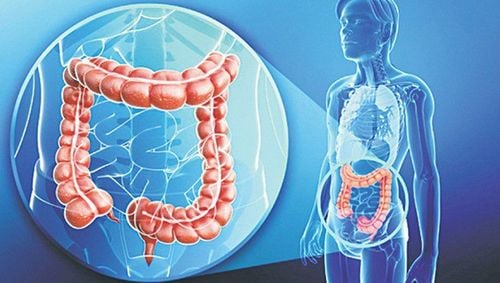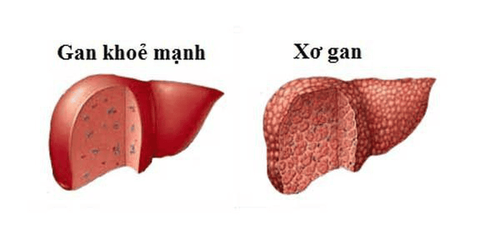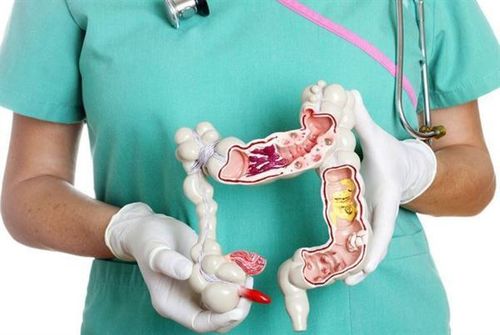This is an automatically translated article.
The article is professionally consulted by Master, Specialist II Phan Thi Minh Huong - Gastroenterologist - Department of Medical Examination & Internal Medicine - Vinmec Danang International General HospitalAs we age, we face many health problems including an increase in digestive health disorders. Nearly 40% of older adults experience one or more age-related digestive symptoms each year.
1. Digestive problems occur due to age
Constipation One of the most common problems in your 60s and 70s is a change in bowel habits and most often constipation. Symptoms include difficult or painful bowel movements, infrequent bowel movements, and dry and hard stools. Age factor plays a big role in causing constipation in the elderly.Changes in the digestive system The digestive system moves food through the body by a series of muscle contractions. These contractions push food along the digestive tract. As the body ages, this process slows down and causes food to move more slowly through the colon. Once this process slows down, water from leftovers is lost and can cause constipation.
Side effects of drug use Ellen Stein, associate professor of medicine at Johns Hopkins Hospital in Baltimore, says older adults often have to take a lot of medications as their bodies get older and start to have many problems. health. Among them are some common medications that can cause constipation, such as calcium channel blockers, which are used for high blood pressure.
Narcotic pain relievers are also a common culprit for constipation. Older adults who have knee or hip replacement surgery will often need to take an anesthetic to relieve pain. Narcotics have a direct effect on the intestines and they actually slow down the digestion of the intestines.
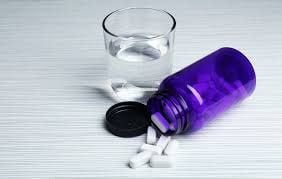
Tác dụng phụ của việc sử dụng thuốc có thể ảnh hưởng đến hệ tiêu hóa của người cao tuổi
Inactivity Older people tend to become less active and this can make them constipated. Bed rest when sick can cause many digestive problems.
Not drinking enough water Dehydration is common among older people who take diuretics for high blood pressure or heart failure. Diuretics lower blood pressure by causing the body to lose excess fluid by urinating more often.
Some people find ways to reduce drinking too much liquid to limit the time to go to the bathroom, which also makes the body dehydrated. The body loses water when we urinate more and drink less.
Have diverticulosis About half of people age 60 and older have diverticulitis. This occurs when small sacs in the lining of the colon bulge along weak spots in the intestinal wall.
Diverticulosis sometimes doesn't cause any symptoms or can only be manifested by gas, bloating, cramps, and constipation. Diverticulosis is part of the aging process of the colon. As you get older, the body is more likely to develop these diverticula.
Although these diverticula are usually not cause for concern and do not require treatment, they can cause scarring. If the sacs become inflamed, it can cause abdominal pain, cramps, fever, chills, nausea, and vomiting. Antibiotics, pain relievers, and a liquid diet can be used to treat diverticulitis.
Ulcers and NSAIDs Many older adults must use nonsteroidal anti-inflammatory drugs (NSAIDs) to manage pain from arthritis and other types of chronic pain. Regular use of NSAIDs may increase the risk of bleeding and stomach ulcers.
So, although aging does not make the stomach more susceptible to ulcers, chronic use of NSAIDs increases the risk of stomach ulcers.
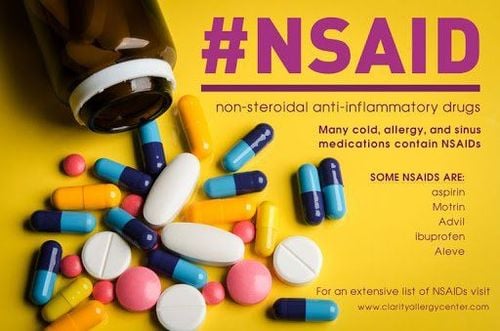
Thuốc chống viêm không chứa steroid có thể làm tăng nguy cơ loét và xuất huyết dạ dày
Polyps After age 50, the risk of developing polyps or small tumors in the colon increases. Polyps may not be cancerous, but they can become cancerous. We don't know what causes polyps but it could be the result of a cumulative effect over many years. Many people have polyps without even knowing it because they often don't have any symptoms. That's why screening colonoscopy is recommended for people over the age of 50 to find and remove them before they become cancerous. People with a family history of colon cancer or other risk factors may need to be screened earlier.
GERD Gastroesophageal reflux disease (GERD) is the most common upper gastrointestinal disorder in older adults, although it can be affected by any age group. GERD occurs when stomach acid backs up into the esophagus, causing heartburn and other symptoms.
Heartburn is more common in old age but it is often caused by factors unrelated to aging. Eating late at night and eating the wrong foods, such as fast food and fried foods, can both cause reflux.
Certain medications, including blood pressure medications commonly taken by many older adults, can also cause heartburn. Obesity increases the risk of heartburn and GERD, so if you gain weight as you get older, your risk of acid reflux is higher.

Ăn quá nhiều đồ chiên rán cũng có thể gây ra trào ngược dạ dày thực quản
2. How to protect digestive health in the elderly
Just like any other health problem, prevention is the best medicine to keep the digestive system running smoothly. The tips below can help protect the digestive system and overall health of the elderly.
Check your medications Take care with your medications by talking to your doctor to see if any medications you're taking could be causing any gastrointestinal symptoms. If you use NSAIDs for pain, talk to your doctor to find the lowest effective dose, and remember to take them after eating. Also check with your doctor to make sure you're only taking the medications you really need.
Stay active Exercising for at least 30 minutes 5 days a week can help prevent many age-related health problems and help reduce the risk of colon cancer.
Eat more fiber Fiber-rich foods including fruits, vegetables, whole grains and beans also tend to be high in nutrients and low in fat. Foods high in fiber can help prevent constipation and ease symptoms of diverticulosis.
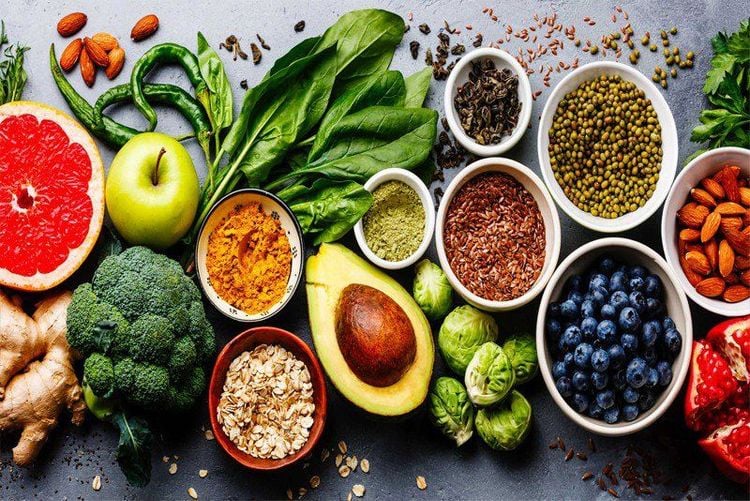
Bổ sung thực phẩm giàu chất xơ mỗi ngày để ngăn ngừa nguy cơ táo bón
Weight management Maintaining a healthy weight can help prevent many age-related health problems like heart disease, diabetes and high blood pressure. At the same time, it is possible to avoid health problems that require medication, which means less side effects caused by drugs on the digestive system.
Limiting fat in your diet by choosing healthy portions and choosing whole grains instead of processed foods will make it easier to control your body weight.
Routine Health Checkups Talk to your doctor about any troubling symptoms and request regular checkups to catch problems early.
Please dial HOTLINE for more information or register for an appointment HERE. Download MyVinmec app to make appointments faster and to manage your bookings easily.
Article reference source: webmd.com






